Owner of house of horrors packed with 112 pet rats banned from keeping pets - apart from cats
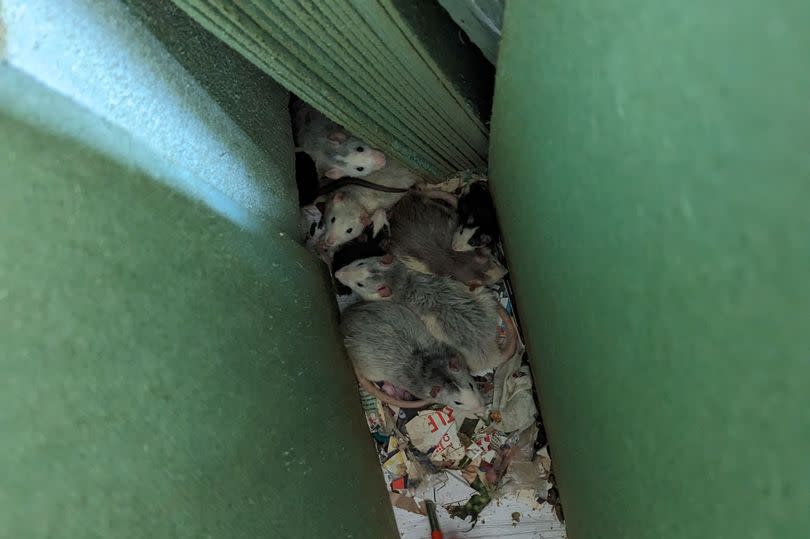
More than 100 pet rats were rescued from a house of horror in Leyland after their owner left them living in squalid, dirty conditions.
Sarah Jordan, 31, was handed a suspended prison sentence after letting the rats breed out of control with many suffering untreated medical conditions. RSPCA officers who visited Jordan's home in Haig Avenue were so overwhelmed by the smell of ammonia they struggled to breathe.
They discovered 38 rats running loose and another 74 in cages. Large rat nests were found in a set of drawers and under a bookshelf, while one young rat was seen drinking from a leaking radiator because the animals hadn’t got any water.
READ MORE:
Many of the female rats were pregnant and later gave birth to around 80 babies in RSPCA care. Jordan has now been banned from keeping any animal, except cats, for 15 years.
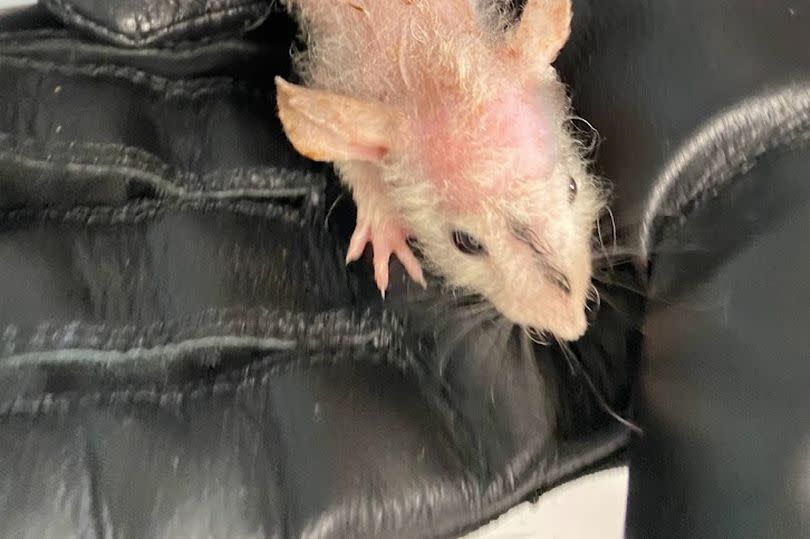
At a sentencing hearing on May 28, Preston Magistrates Court heard how one of the charity’s Animal Rescue Officers, Jess Pierce, accompanied by a vet, had gone to Jordan’s property on April 18 2023 following concerns that a large number of rodents were being kept there in poor conditions.
A strong smell of ammonia was coming through the letterbox and police were subsequently called to help gain entry because of concerns for the occupants and animals inside.
In a written statement to the court ARO Pierce said: “Myself and the vet entered the house. The rats were being kept in one room which was the first door on the right as you went in.
“As soon as we entered the smell of ammonia was overwhelming, it was stinging my eyes and it was very difficult to breathe. There were two large rat cages and three smaller cages. All the cages were filled with rats, they were also loose in the room.
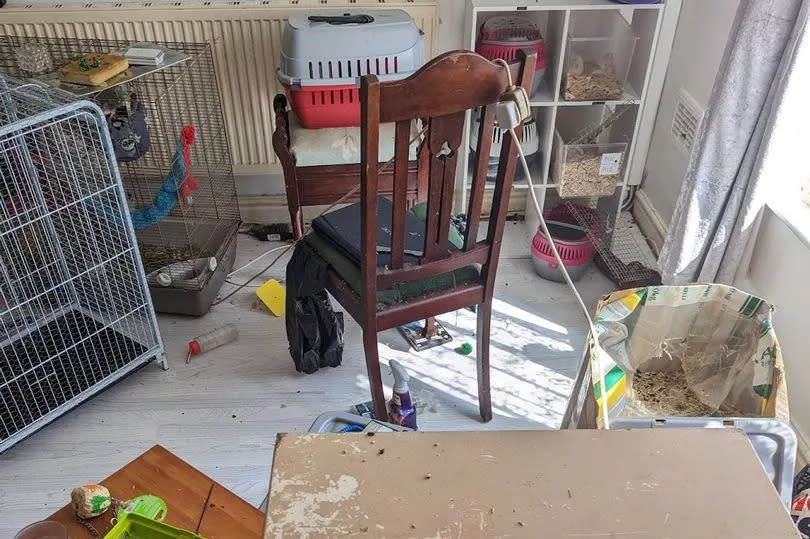
“All the cages had beds and enrichment but there was no fresh food or water anywhere, the room was also very warm. There were a few rats with skin conditions and in poor bodily condition. I also witnessed one young rat drinking out of a leak in the radiator.
“I had to leave the room every now and then as the ammonia had given me a headache and it was very difficult to breathe. I contacted our control centre and requested assistance from colleagues due to the number of rats at the property.”
The court was told that 38 rats of mixed ages and sexes were running loose in the room, where electrical wiring and disinfectant solutions were seen. A further 74 rodents were living in four cages with soiled bedding, no food and empty water bottles.
Some of the animals had made a nest in a chest of drawers with newspaper and cardboard tubing, and several were sneezing and displaying respiratory symptoms, likely due to the ammonia.
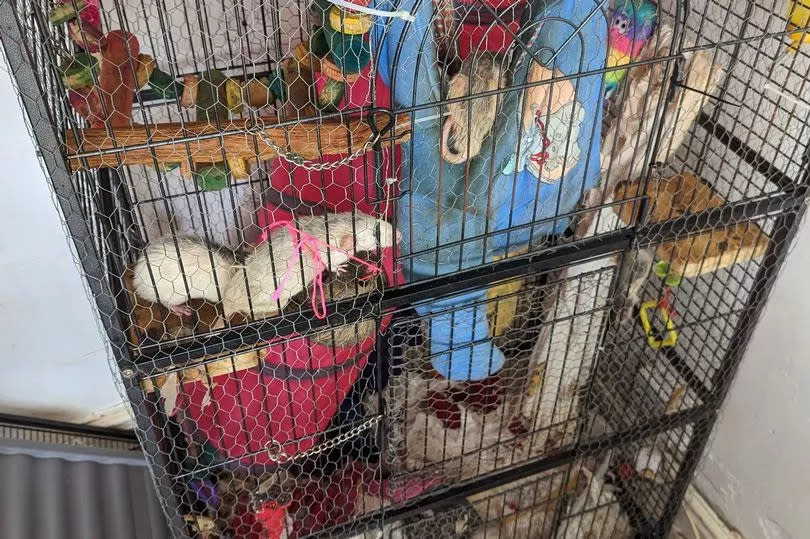
Three had fur loss and scabbing - commonly associated with stress - one was missing half a tail and another had a large untreated wound on the back of his neck. Multiple female rats were pregnant, later giving birth to 80 babies in RSPCA care.
The vet who was present said the animals were suffering or likely to suffer if their circumstances didn’t change and they were taken into police possession. It took a team of RSPCA officers more than two hours to catch and transport them all for veterinary treatment.
In written evidence to the court the vet who examined the animals at the RSPCA’s Greater Manchester Animal Hospital, said: “The owner of the rats had failed to provide an appropriate, safe, hazard-free and clean environment. Given the evidence presented to myself I believe the rats were likely without food and water for a period of days. The environment - soiled, ammonia smelling bedding - is likely to have developed over weeks.
“There was severe overcrowding in three of the four cages. This environmental failure is likely to have developed over several months. Eighty nine of the 112 rats were of a socially mature age (greater than six months) and several were found to be pregnant.
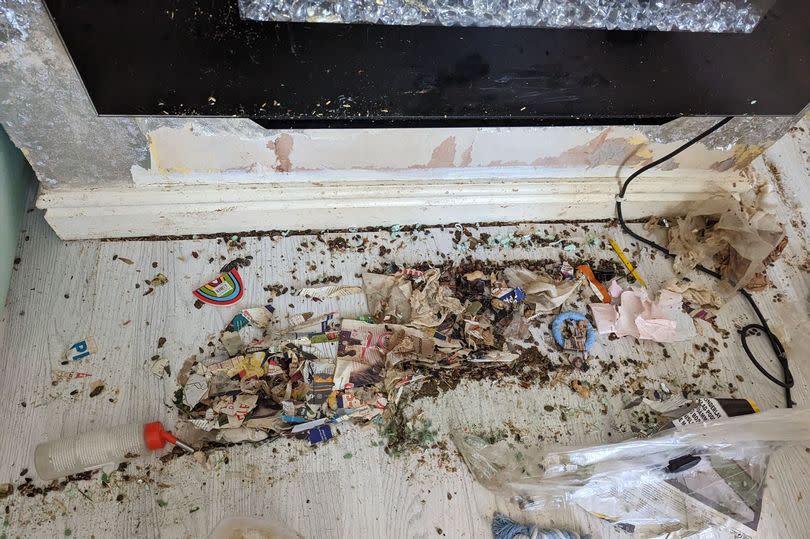
“I would expect a responsible owner to contact a veterinarian for advice if they noticed hair loss or scabbing present on their rats. Another symptom I would expect an owner to seek veterinary advice for is respiratory disease.
"Regardless of the cause of the owner’ failings, steps to improve the rats welfare should have been taken much sooner e.g. starting by reducing their numbers to a more manageable amount and splitting them into male and female groups to avoid further offspring.”
Jordan was interviewed by the RSPCA about what happened. She said she had bought four male and three female rats from someone in Preston and admitted she bred them to sell, ensuring they only went to ‘the best homes’.
She said she was aware that some of the rats were pregnant but didn’t see it as a problem because she had owners lined up. She added the money she made from selling them was spent on the animals and wasn’t used for financial gain.
Jordan, who had pleaded guilty to four Animal Welfare Act offences at an earlier hearing, was given a four week prison sentence - suspended for 18 months - on each count to run concurrently. A 60-day curfew from 8pm to 7am was also imposed.
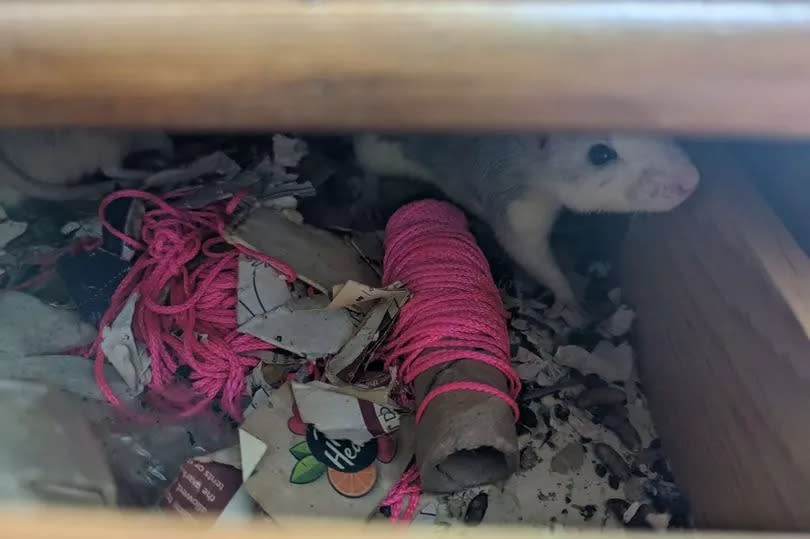
Three of the rats were sadly put to sleep on veterinary advice because of their extremely poor condition. The remaining rodents were looked after at numerous RSPCA centres and branches up and down the county and many have already found new homes.
Speaking after the case had concluded ARO Pierce said: “There were an astonishing number of rats being kept at the house and clearly their welfare had been compromised as a result of uncontrolled breeding and the unsuitable conditions they were being kept in.
“It took myself and a number of colleagues many hours to remove them all, and we are so grateful to the large number of RSPCA branches and centres up and down the country who took the rats in and also cared for the 80 babies that were born in our care. The RSPCA turns 200 this year, and this was a great example of our welfare teams working together to help animals.”

 Yahoo News
Yahoo News 
